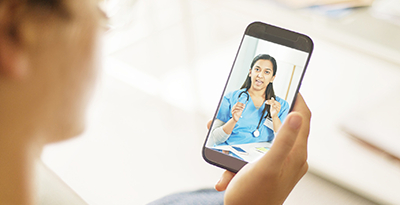Covid-19 and Transplant Operations
The transplant team at UC Davis Health is closely following developments related to COVID-19. UC Davis Health and the transplant team is making every effort to keep everyone safe and protected. Vaccination is still the best way to slow or halt the spread of COVID-19 including the Delta variant.
Updated Vaccine Information
COVID VACCINE INFORMATION
The UC Davis Kidney Transplant Team continues to follow COVID-19 rates and community spread, and the United States is currently experiencing record numbers of COVID-19 cases.
UC Davis Transplant Center strongly recommends vaccination against COIVD-19.
Government recommendations from the Center for Disease Control are changing frequently, particularly during the current surge, so we will attempt to keep you updated via MyChart recommendations. For the most up to date information from our team please continue to visit our website.
If you have received your full COVID vaccinations but do not see the vaccines documented in your MyChart, please call your transplant team at 916-734-2111 to update your records.
Updated March 3, 2023
Patient visits are conducted in person unless otherwise indicated.
Patients and visitors wear a mask at all times while in the transplant clinic regardless of vaccination status.
Providers and staff are required to comply with universal masking with all patients.
Continue to exercise common sense infection prevention habits such as regular hand washing (especially before eating), not sharing food or drinks and maintaining some degree of physical spacing from another person’s face.
The UC Davis transplant team is here for you. The Transplant Clinic in the Cypress Building in Sacramento is open during regular business hours. If you have questions, please do not hesitate to call 916-734-2111 or 800-821-9912.
Post-transplant Patient COVID-19 Vaccine Considerations
- Wait 3 months after transplant before receiving 1st dose of vaccine.
- For newly transplanted patients who received 1st dose prior to transplant, wait 3 months after transplant for 2nd
- If there is a choice in vaccine, UC Davis recommends:
- Moderna
- Pfizer
- Johnson & Johnson
- Any vaccine is better than no vaccine.
- No adjustment of immunosuppression is required prior to vaccination.
- Continue precautions (masking, hand washing, social distancing) after full vaccination. Vaccine response is lower in transplant patients due to immunosuppression.
- Although COVID vaccines were not specifically studied in transplant patients, the side effects do not seem more severe compared to general public.
- UC Davis does not recommend checking COVID antibody after vaccination. Although the test is available through Quest, it is unclear how the information can be used.
- Adenovirus in Johnson & Johnson vaccine is genetically engineered and does not replicate, so it should not cause infection even in immunosuppressed patients.
If you or your doctor have any questions, please reach out to your Transplant Coordinator at 916-734-2111
Transplant patients: Looking for answers to questions about COVID-19 and transplant?
Go to TransplantLiving.org for the latest news and resources, including:
Frequently asked questions and answers
- What does it mean to be "immunocompromised"?
- Why are transplant recipients considered more vulnerable to illness like COVID-19?
- What COVID-19 treatments are available for those who are immunosuppressed?
Vaccine information
- American Society of Transplantation (AST) updates COVID-19 Vaccine FAQ Sheet
- National Institute of Health (NIH) offers statement on the prophylaxis Evusheld for COVID-19 prevention
- The U.S. Food and Drug Administration (FDA) approves Moderna COVID-19 Vaccine
Webinars
- The COVID-19 Vaccine: What does it mean for our transplant recipient children? Presented by Transplant Families and the American Society of Transplantation (AST)
- COVID-19 and Transplant: Patient questions answered. Hosted by UNOS Chief Medical Officer, David Klassen, M.D.
Spanish language resources
- Information about COVID-19 vaccines for Hispanic patients from the American Society of Transplantation (AST)
This information is not intended as specific health advice. If you have more detailed questions, contact your medical provider.

